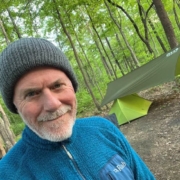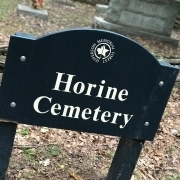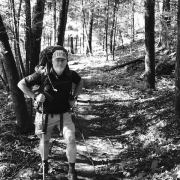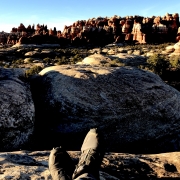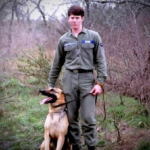It’s All About the Engine, Part 1 | Healthy Aging Series: S10 E1
If I Only Had A Brain
I could while away the hours
Conferrin’ with the flowers,
Consulting with the rain;
And my head I’d be a scratchin’
While my thoughts are busy hatchin’
If I only had a brain.
I’d unravel ev’ry riddle,
for my individdle
In trouble or in pain
With the thoughts that you’ll be thinkin’
You could be another Lincoln
If you only had a brain.
Oh, I, could tell you why
The oceans near the shore
I could think of things I’d never
Thunk before,
And then I’d sit down and think some more.
I would not be just a muffin’,
My head all full of stuffin’,
My heart all full of pain;
And perhaps I’d deserve you and be
Even worthy even you
If I only had a brain.
Scarecrow – Wizard of Oz
Ya gotta have a brain. I think we all get this. It pretty much ensures that everything in your body gets done. When it doesn’t work, things don’t get done or things don’t get done well.
Mountain Biking
A number of years ago, a younger version of me took up mountain biking. I took a handlebar to the ribs and stopped mountain biking for the more relaxing sport of road cycling. During that mountain-biking phase, I had a discussion with my Personal Trainer about bicycles, about the best frames (aluminum vs carbon fiber), about shifters, about wheels (27.5 inches vs 29 inches), and really, about gear. Gear. That’s what sports enthusiasts talk about, gear.
After 30 minutes of talking about gear, my Trainer looked at me and said, “Forget about all that stuff, all that gear. It’s not about the bike, or the wheels, or the shifters. It’s all about the engine!”
Of course, he was talking about the body. He was talking about your cardio fitness. He was talking about your core and leg strength. It’s all about the body!
As I prepared for this season, I thought about the importance of the brain. Isn’t IT the real engine that runs the body. With that in mind, I’ve entitled this season: It’s all About the Engine!
This season is about having a healthy engine. But first, I want to share what happens when the engine is injured. It’s not good.
Broken Engines
During my time as a therapist, I’ve worked with many individuals with brain injuries. To help you understand the tragic nature of these injuries, I’ll share a few stories. I’ve changed names, and anything that could identify them, and really these stories are a compilation of several fellow strugglers I have worked with.
Matthew
Matthew was 18 years old and had a very conflicted relationship with his mother. One afternoon, they were traveling on a busy street. They began to have a very heated argument and it became so heated that, as they came to a stop at an intersection, Matthew jumped out of the car.
Relieved to see the fight end, his mother left him to cool down, but she was unaware that, after pulling away, he was struck by a car while crossing the road and thrown 50 feet. It changed his life forever. He was in a coma for several months. Rehab for a year. Matthew was approved for a program for persons with traumatic brain injuries. It became apparent there were serious problems related to his brain injury. The hypersexuality, along with his impulsivity contributed to his frequent masturbating in public. He developed a compulsion to ask every barista, every staff member, and any woman that would smile at him, for their phone number. Despite all the clinical and behavioral interventions, these behaviors continued to make it difficult for Matthew to live in the community and eventually he was prescribed an anti-libidinal medication, which helped with his hypersexuality.
Luke
Luke was in his late 20s. He had been drinking and driving five years earlier and was the only occupant of his car when he slammed into an oak tree. He survived the accident due to the heroic efforts of the EMTs and ER staff. At the time of the accident, he was married with a newborn baby girl. Now, at 26, he was living with his parents. He was non-ambulatory, meaning he was wheelchair-bound. He could not talk. He had very limited use of his arms. He was on a special puréed diet that ensured he wouldn’t choke on his food. During his rehabilitation, his father had a heart attack, which I’m sure was partly due to the stress of the past five years.
Luke’s wife, though she didn’t divorce him, refused to see him, or allow his daughter to see him or visit him. I suspect the pain was unbearable for her.
John
John was a man in his 50s. His traumatic brain injury was a result of driving under the influence of drugs. 15 years later, he was living in a group home. He had serious memory issues. I worked with him for two years and had to remind him regularly who I was. John was unable to manage or maintain any personal relationships. The only relationships he had were with his professional staff and various therapists. He continued to see his elderly mother. He received a monthly check but had very little disposable income after paying rent and groceries. The team that supported him was constantly on the alert because John would buy money orders and send them to scammers that would ask for help paying their bills, help buying an airline ticket to get back into their home country or help making funeral arrangements for a lost child. He would send money to sweepstakes offers, believing that he had millions of dollars. This was his life.
I share these stories with you to make a point. If you experience a traumatic brain injury, it will dramatically change your life forever. It can change the way you think, the way you act, and it can change your personality. It will change you because everything you do, think, and feel is the product of your brain.
Thankfully, most of us will not experience a Traumatic Brain Injury! But nevertheless, we are getting older, and so is our brain!
Our Aging Brain
How does aging affect our brains? All of us know someone who appears to have dementia, possibly Alzheimer’s. As we age, most of us will have difficulty recalling names of actors or famous people. And we will have difficulty remembering where we put things, not to mention the changes in sleep patterns that result from an aging brain, If all of this isn’t a little alarming, what about the prevalence of anxiety and depression that many aging adults experience? Does this have anything to do with your aging brain?
Here is the most important question I think to ask about the aging brain:
Is there anything we can do that will ensure that our engine stays fine tuned as we age?
Of course, the answer is yes!
I’m reading a lot about the aging brain. I’ll share five or six episodes that will put brain health in very simple terms. As an example, this is what I’ve learned: “What’s good for the heart, is good for the brain.“
The Swedish Art of Living Exuberantly, by Margaretta Magnuson
I’m going to reflect on the follow-up to “The Swedish Art of Death Cleaning” with “The Swedish Art of Living Life Exuberantly.”
This is Your Brain on __________________
We will have several episodes on things that affect your engine. Some of these include exercise, nutrition, stress, music, meditation, books, love, and sleep, just to name a few. We will look at studies that look at the affects that playing video games can improve our Fluid Intelligence (I’ll share about Fluid and Crystalized Intelligence in a later episode). We will look at the use of supplements and alcohol and their effects on your engine. We will also look at the MIND Diet.
Successful Agers
I’ll share memoirs by Betty White and Captain James T. Kirk of the Starship Enterprise.
Unfortunately, we also must look at some serious disorders of the brain.
Dementia Memoirs
Last season, I shared several Obesity Memoirs. This season we will look at Dementia Memoirs and the impact that dementia has on people and their caregivers. I will share the lives of Glen Campbell, B. Smith, and Elaine Schreiber. I’ll have at least two episodes for Caregivers.
Stroke Memoirs
I’ll share three memoirs from stroke survivors. These stories are inspirational.
A Fairy Tale, Backpacking, and Desert Therapy
Throughout this upcoming season, I’ll share a couple Interlude’s. One is a fairytale that I wrote called “The Magic Necklace.” In the other interlude, we will look at my favorite hobby and how it has, in some sense, saved my life. I’m speaking about backpacking and hiking. I’ll share some of my experiences out on the trail, in the desert, and in the forest.
“On the Shortness of Life”
I’m going to reflect on the small book by Seneca, about getting the most out of the short life that we all have.
I think about those that I have served with brain injuries and how sudden the change came to their lives after their injury.
The aging process is dramatically different in that it’s a slow and almost imperceptible process that happens. You must take care of your engine!
I’m going to give you some very, very clear and simple ways of doing that!
I hope you enjoy this season of my blog about healthy aging and the aging brain.
It’s all About the Engine!
Protecting Your Brain
I would be an irresponsible clinician if I didn’t mention some practical ways of protecting your brain. I’m sharing a link for BIAK (Brain Injury Association of Kentucky). Donate if you can. They are a wonderful agency that provides free helmets for cycling!
Here are my practical recommendations:
- Wear a helmet when riding a bike or motorcycle.
- Make sure your children wear helmets when they are riding bicycles or scooters.
- Wear your seat belt.
- Do not drink and drive.
Here is the BIAK link: https://biak.us/

